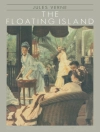In ‘The Old Wives’ Tale, ‘ Arnold Bennett masterfully weaves the lives of two sisters, Constance and Sophia, as they navigate the complexities of love, ambition, and the inevitable passage of time in the industrial town of Bursley. The narrative is marked by Bennett’s keen psychological insight and a warm, conversational style that draws readers into the characters’ intimate experiences. Set against the backdrop of late Victorian England, the novel employs a rich, detailed realism that reflects the socio-economic conditions of the time, highlighting the struggles of women within a patriarchal society while simultaneously celebrating their resilience and strength. Arnold Bennett, a prominent figure of the early 20th century literary scene, was deeply influenced by his own upbringing in a pottery district in England. His personal experiences provided him with a profound understanding of the regional culture and the lives of ordinary individuals. ‘The Old Wives’ Tale’ epitomizes Bennett’s thematic focus on the interplay between individual dreams and societal expectations, drawing on his own observations of familial relationships and the transformative power of time. This novel is a must-read for those interested in critical examinations of gender, time, and memory. Bennett’s nuanced characters and evocative prose invite readers to reflect on their own life choices, bridging the gap between past and present. Engaging and thought-provoking, ‘The Old Wives’ Tale’ remains a significant contribution to modernist literature.
Circa l’autore
Enoch Arnold Bennett, born on 27 May 1867 in Hanley, Staffordshire, and passing on 27 March 1931, was a preeminent English novelist and one of the most noteworthy figures in the early 20th-century literary world. Bennett’s work is characterized by its astute narration and vivid portrayal of everyday life in the Five Towns, the collective name for the Stoke-on-Trent pottery manufacturing area in Staffordshire, which mirrored his own upbringing (Penguin Random House, n.d.). His literary career spanned several genres, including novels, short stories, plays, and essays, showcasing his versatility and keen observation of human behavior. Among his most celebrated works is ‘The Old Wives’ Tale’ (1908), a comprehensive study of the lives of two sisters, which has since been acclaimed for its rich detail and its incisive exploration of human character and the passage of time (Eldridge, 1994). A contemporary of H.G. Wells and friend to writers like Somerset Maugham, Bennett’s legacy rests on a body of work noted for its realism and narrative strength, contributing a significant chapter to the annals of modern British literature. His narrative techniques and realistic depictions of the middle-class life are said to prefigure the domestic focus prominent in the later works of the 20th century.












